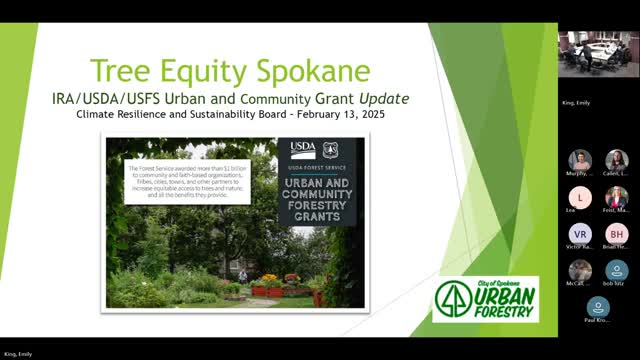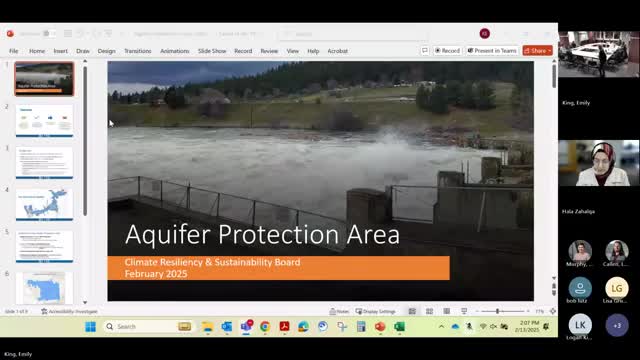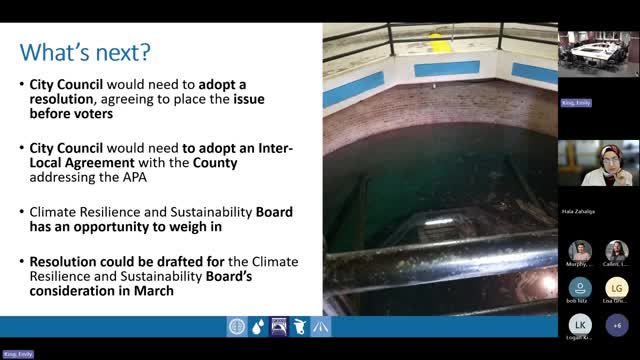Article not found
This article is no longer available. But don't worry—we've gathered other articles that discuss the same topic.

City outlines $6 million tree‑equity project; crews paused pending federal grant administrator guidance

City staff outlines option to rejoin county aquifer protection area; board signals support to draft resolution

